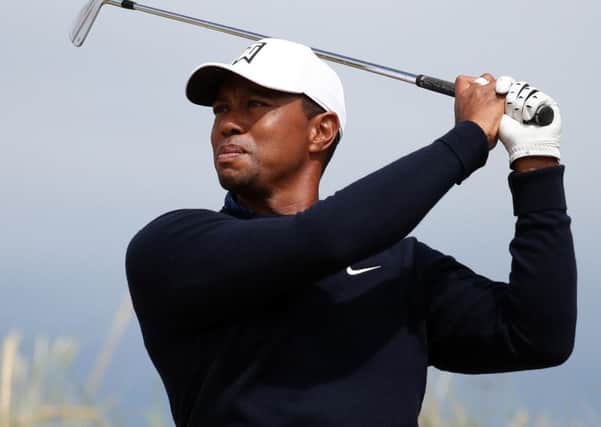John Grogan: As The Open tees off, why sport is the big loser as pay TV dominates


I vowed that one day I would go too, but in the meantime I tuned in to BBC TV’s coverage of the championship. A man called Peter Alliss had just been appointed as the BBC’s lead golf commentator. Little did I know that he would become the voice of live coverage of The Open.
Then, in 2016, the governing body of the sport, namely the R&A, decided to sell exclusive live TV rights to Sky TV. Viewing figures plummeted by 75 per cent and ironically the BBC’s highlights programme, to which Peter Alliss was relegated, got more viewers than the live coverage on subscription TV.
Advertisement
Hide AdAdvertisement
Hide AdCricket is another sport which has suffered through loss of free-to-air exposure. Sports fans of any kind above the age of 25 will remember the glorious Ashes series of 2005. About nine million people watched the final Test match at the Oval on Channel 4 when England reclaimed the Ashes. That was the last free live cricket of any substance on our television screens.
It is interesting to look at the figures published by Sport England which tracked participation in a whole range of sports from 2005 to 2016. There was a spike in involvement in cricket immediately after 2005, but those numbers quickly fell away over the next decade.
Towards the end of the Labour government in 2009, a review suggested putting Test cricket back on the list of protected events which must – by law – be offered to free-to-air TV channels. The English Cricket Board (ECB) lobbied heavily against that proposal and David Cameron’s coalition government dropped the plan.
However, the ECB’s thinking has adapted a little in the intervening years. They were no doubt struck by a poll of schoolchildren who were given two pictures – one was of Joe Root, the England cricket captain and perhaps the finest living Yorkshireman, and the other of a wrestler from the United States.
Advertisement
Hide AdAdvertisement
Hide AdFar more of the children recognised the wrestler than they did Joe Root. So the ECB have done a deal with the BBC, which means that some live cricket – including a new Twenty20 tournament and some Twenty20 internationals – will come back to the Corporation in 2020.
One day a future government will, hopefully, review again the listed sporting events, It may be pressures of gender equality that encourage them to do so . All the team sports which are currently represented in the list such as the FA Cup and rugby union World Cup are male. As the World Cups for women in cricket, rugby and football become more popular, the case for adding them to the list will grow.
Meanwhile there is one immediate thing that this Government can do to underline the cross-party commitment to the principle of listed events which has been a feature of British politics for many decades.
The whole of the recent football World Cup was listed for free-to-air coverage. Every pub and restaurant could show the action. There are rumours of a bid from the Home Nations to stage the event in 2030. A decade or so ago, England tried to win the contest to stage this year’s tournament, losing out eventually to Russia. If this country had been awarded the tournament, the Government had promised to amend the law so that most of the matches could have been sold off to pay TV and, in doing so, line the pockets of Fifa. This time it needs to be made clear from the outset that no such offer will be on the table.
Advertisement
Hide AdAdvertisement
Hide AdNext year The Open will be at Royal Portrush in Northern Ireland for the first time since 1951. My fellow member of the Northern Ireland Select Committee, Ian Paisley Jnr, has invited me to attend enabling me to fulfil a lifetime’s ambition.
It is just a pity that the population of his home nation at about 1.8 million will almost certainly be about twice the number of people who will watch the tournament live across the whole of the United Kingdom. The irony.
John Grogan is the Labour MP for Keighley.